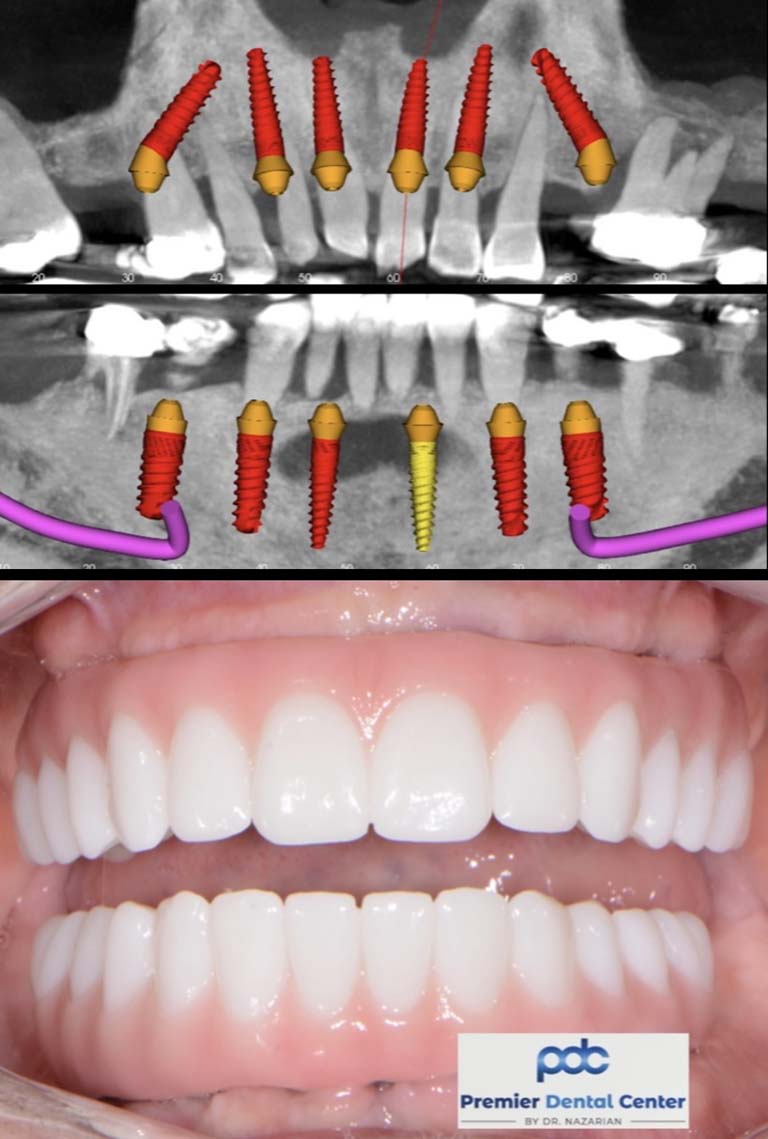About Dental Sense
About Dental Sense
Blog Article
Dental Sense Fundamentals Explained
Table of ContentsNot known Factual Statements About Dental Sense The Ultimate Guide To Dental SenseNot known Details About Dental Sense The Main Principles Of Dental Sense
are clinical tools surgically dental implanted into the jaw to recover an individual's capability to eat or their look. They give assistance for fabricated (fake) teeth, such as crowns, bridges, or dentures. When a tooth is lost because of injury or illness, a person can experience complications such as quick bone loss, defective speech, or adjustments to chewing patterns that cause discomfort.Dental implant systems include a dental implant body and dental implant abutment and might likewise consist of a joint fixation screw. Root canal procedure. The dental implant body is operatively put in the jawbone instead of the tooth's root. The oral implant abutment is normally affixed to the implant body by the abutment fixation screw and prolongs through periodontals into the mouth to sustain the affixed fabricated teeth
(https://www.find-us-here.com/businesses/Dental-Sense-Miami-Florida-USA/34200016/)Structure of The Oral Implant System picking oral implants, talk to your oral provider about the prospective benefits and dangers, and whether you are a prospect for the treatment. Things to consider: Your total health is a vital variable in identifying whether you are a good prospect for dental implants, the length of time it will certainly take to heal, and exactly how long the implant might remain in place.
Smoking cigarettes may affect the healing procedure and lower the lasting success of the dental implant. The recovery process for the dental implant body may take numerous months or longer, throughout which time you normally have a momentary joint in place of the tooth. the oral implant procedure: Carefully comply with the oral health directions offered to you by your oral copyright.
The smart Trick of Dental Sense That Nobody is Talking About
Implant failing can lead to the need for an additional surgical procedure to take care of or change the implant system. Brings back the capability to eat Recovers aesthetic appearance Aids keep the jawbone from reducing as a result of bone loss Maintains the health of the bordering bone and gums Helps maintain adjacent (neighboring) teeth secure Boosts high quality of life Damages to bordering natural teeth throughout dental implant placement Injury to the surrounding tissues throughout surgery, such as sinus opening Injury throughout surgical procedure (for example, fracture of surrounding jawbone) Inadequate function, such as feeling like the teeth do not bite with each other typically A feeling that the tooth hangs or twisting in position resulting from an abutment screw loosening Implant body failure (looseness of the dental implant body) as a result of systemic infection, which may be most likely in people with unchecked diabetes mellitus as a result of regional infection in bone and gum tissues sustaining the dental implant body as a result of delayed healing, which might be extra likely in clients that smoke Problem cleaning up read the periodontals around the dental implant, leading to bad dental health Without treatment gum condition Post-surgical numbness because of nerve impingement or damage Constantly inform health care carriers and imaging technicians that you have oral implants before any kind of magnetic resonance imaging (MRI) or x-ray treatments.
FDA is not familiar with any adverse occasions reported for MRI or x-ray procedures with oral implants. Oral implants systems are generally made from materials that follow global consensus criteria of the International Organization for Standardization (ISO) or ASTM International. These criteria have information of what makes a secure material.

An oral implant is a structure that replaces a missing tooth. With screw-like gadgets, the doctor inserts an implant into the jawbone, and it acts as an anchor for an artificial tooth, called a crown.
The Ultimate Guide To Dental Sense
Some people are not eligible for oral implant surgical treatment. It is for oral surgeons to operate people with: acute illnessuncontrollable metabolic diseasebone or soft tissue disease or infectionIf these problems are resolved, a person can have the surgical procedure. In, dental doctors avoid operating individuals with: If people with any one of the above undergo oral implant surgical treatment, there is a higher danger of the implant falling short.

Oral dental implant surgery is a customized process. Provide you time to recover. Attach the message and last crown, bridge or denture.
Next off, your doctor will very carefully place the dental implant right into your jaw. Your specialist will certainly reposition your gums and shut the cut with stitches. If your dental implant is near the front of your mouth, your dental expert will certainly make a temporary tooth for you to put on up until you recover. In this way, you won't have a void in your smile while you recuperate.
The Best Guide To Dental Sense
Your company can tell you what to anticipate in your situation. During the healing stage, your jawbone needs to fuse to the dental implant. This procedure, called osseointegration, is essential for security and long-lasting success. This process can take anywhere from three to nine months. Sometimes, it might take longer.
As soon as your implant heals, your dental professional can attach the joint (small connector message) and your last restoration (crown, bridge or denture). This usually takes regarding one hour to finish and may require a 2nd small surgery. You should not feel any kind of pain throughout your oral implant procedure due to the fact that your company will certainly utilize drug to numb your gum tissues.
Report this page